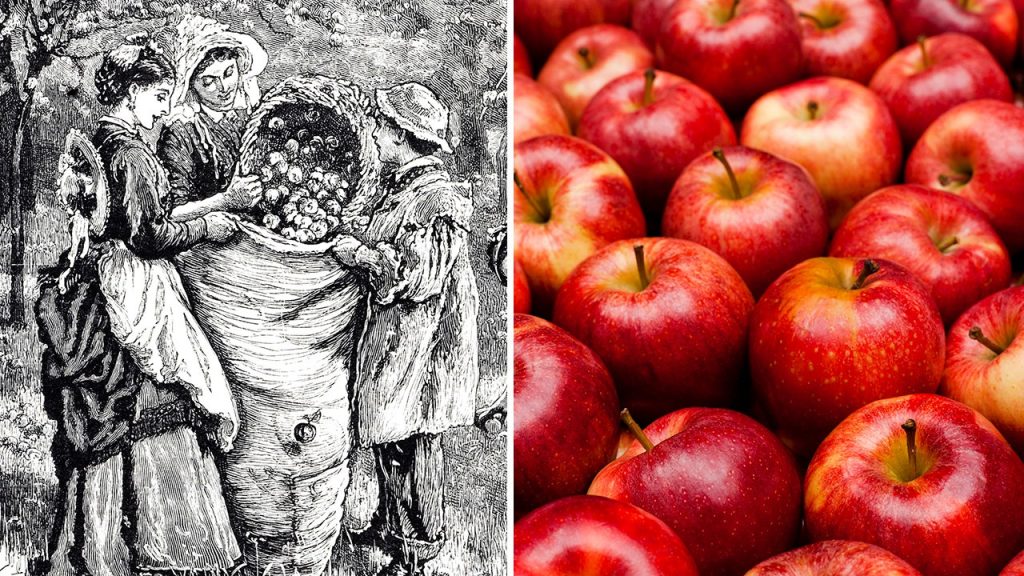This fall, as you enjoy apples in various forms, remember William Blaxton, an eccentric and bookish loner who planted the first apple orchards in what is now the U.S. in present-day Boston in the 1620s. Blaxton, also known as Blackstone, settled in Boston before the Puritans and Rhode Island before Roger Williams. He is credited with bringing the exotic crop of apples to American shores, leaving behind an awesome legacy that has become deeply ingrained in American culture.
Apples have become synonymous with American wholesomeness, with references to the fruit embedded in the nation’s heritage. Despite being native to Central Asia, apples arrived in the Americas after Christopher Columbus’ explorations. Apples, along with other Old World and New World foods, played a crucial role in the cultural integration and food fusion that occurred during this time period. Blaxton also preferred solitude and the company of his apple orchards and books, leading a quiet and independent life in the New World.
William Blaxton, believed to have been born in 1595 in England, made the journey to the New World on the ship “Katherine” as a chaplain. He settled in Wessagusset, near present-day Boston, and eventually ventured to the Shawmut Peninsula in Boston where he planted his first orchards. The Puritans arrived five years later and Blaxton ultimately moved to Rhode Island due to theological disagreements with his neighbors. Despite these disagreements, Blaxton’s legacy lives on in American apple varieties that likely descended from his original Boston orchards.
Blaxton’s first orchards were planted from seed and the types of apples he grew remain unknown. However, experts believe that early American varieties like the Roxbury Russet, Rhode Island Greening, and Yellow Sweeting likely originated from his orchards. Apples were a versatile food source for pioneers, providing sustenance and reminding Europeans and Americans of home. Blaxton’s legacy is also visible in the numerous memorials and landmarks named after him across Massachusetts and Rhode Island, symbolizing the importance of apples in American history.
The significance of apples in American culture is highlighted by the presence of Blaxton’s name in various locations, including the Blackstone River and the Blackstone National Historical Park. Apples have long served as a symbol of American bounty, with their cultivation playing a key role in the country’s early history. British troops invading Brooklyn during the American Revolution marveled at the orchards, showcasing the importance of apples in American agriculture. The enduring legacy of William Blaxton and the apple orchards he planted continues to be celebrated and remembered in various forms across the country.
In conclusion, William Blaxton’s role in planting the first apple orchards in the U.S. has left a lasting impact on American culture. The apples he cultivated have become a symbol of American heritage and bounty, with various American apple varieties traced back to his original orchards. Blaxton’s legacy is reflected in the memorials and landmarks named after him, highlighting the importance of his contribution to American agriculture. Apples continue to play a vital role in American life, symbolizing the diversity and resilience of the American experience.













